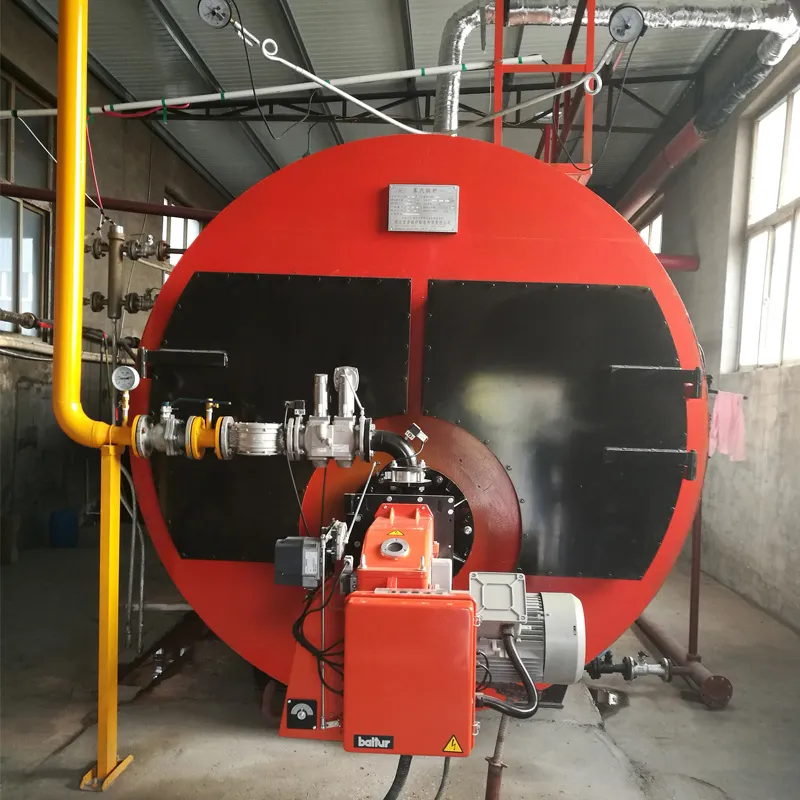
Nov . 17, 2024 06:48 Back to list
steam boiler pdf
Understanding Steam Boilers A Comprehensive Overview
Steam boilers are critical components in various industries, providing essential steam for heating, power generation, and other processes. Understanding the operational principles, types, maintenance practices, and safety concerns of steam boilers is paramount for engineers, operators, and facility managers.
What is a Steam Boiler?
A steam boiler is a closed vessel that heats water to produce steam, which is then used in various applications such as heating systems, power generation, and industrial processes. The steam produced can drive turbines, heat buildings, and facilitate chemical reactions, making steam boilers versatile and indispensable in modern industry.
Types of Steam Boilers
Steam boilers are categorized based on several factors, including their design, fuel type, and operational method.
1. Fire-Tube Boilers In fire-tube boilers, hot gases from the combustion process pass through tubes surrounded by water. The heat transfers through the tube walls, heating the water, which eventually produces steam. These boilers are typically smaller and easier to operate but are best suited for lower-pressure applications.
2. Water-Tube Boilers In contrast, water-tube boilers have water-filled tubes that are heated by external combustion gases. This design allows for higher pressures and larger steam capacities. Water-tube boilers are often used in large industrial applications due to their efficiency and ability to handle high pressure.
3. Electric Boilers These boilers generate steam using electrical energy as their primary fuel source. Electric boilers are usually employed where conventional fuels are not available or feasible, and they offer high efficiency with low emissions.
4. Combined Heat and Power (CHP) Systems Also known as cogeneration, these systems produce steam as well as electricity from the same fuel source. This dual-purpose approach maximizes energy use and is increasingly popular in industrial settings focused on sustainability.
Operating Principles
The operation of a steam boiler begins with the ignition of fuel, which generates heat. This heat increases the temperature of the water contained within the boiler. Once the water reaches its boiling point, steam forms and can be released as needed. The efficiency and output of a steam boiler depend on several factors, including the design of the boiler, the type of fuel used, and the operational practices of the facility.
steam boiler pdf

Maintenance Practices
Regular maintenance of steam boilers is essential to ensure safety, efficiency, and longevity. Key maintenance practices include
- Water Treatment Proper treatment of boiler water is necessary to prevent corrosion and scaling. Regular analysis of water quality and appropriate chemical dosing can help maintain boiler integrity.
- Routine Inspections Regular inspections should be conducted to check for leaks, corrosion, and other potential issues. Components such as safety valves, gauges, and blowdown systems require periodic checks to ensure they function correctly.
- Cleaning Accumulation of soot and scale can significantly reduce efficiency. Regular cleaning of boiler tubes and components is critical to maintain optimal performance.
- Safety Training Operators should be trained in boiler safety protocols, as steam boilers can be dangerous if not managed correctly. Understanding emergency procedures and the proper operation of safety systems is vital.
Safety Concerns
Working with steam boilers involves several safety risks, primarily due to high-pressure steam and potential chemical hazards. It is essential to integrate safety measures in every operation, such as
- Pressure Relief Valves These valves automatically relieve excess pressure to prevent explosions. - Water Level Indicators Maintaining appropriate water levels is crucial; low water levels can lead to overheating and failure. - Regular Safety Drills Conducting drills ensures that personnel are prepared for emergencies.
Conclusion
Steam boilers play a pivotal role in industry by providing essential steam for energy and heating applications. Understanding the various types, operational principles, maintenance practices, and safety measures associated with steam boilers is critical for maximizing efficiency and safety. As industries continue to evolve, the importance of reliable and efficient steam boilers remains steadfast, highlighting the necessity for well-trained operators and stringent maintenance practices to achieve optimal performance.
-
Oil Fired Hot Water Boilers Sale - High Efficiency & Affordable
NewsJul.31,2025
-
High-Efficiency Commercial Oil Fired Steam Boiler for Industry
NewsJul.30,2025
-
High-Efficiency Biomass Fired Thermal Oil Boiler Solutions
NewsJul.30,2025
-
High Efficiency Gas Fired Thermal Oil Boiler for Industrial Heating
NewsJul.29,2025
-
High-Efficiency Gas Fired Hot Water Boiler for Sale – Reliable & Affordable
NewsJul.29,2025
-
High Efficiency Biomass Fired Hot Water Boiler for Industrial and Commercial Use
NewsJul.29,2025
Related PRODUCTS






















